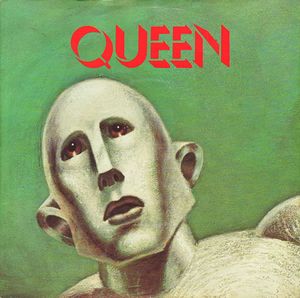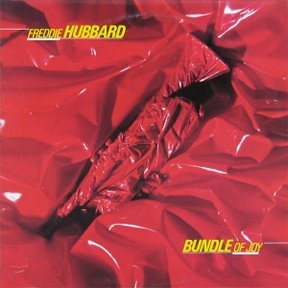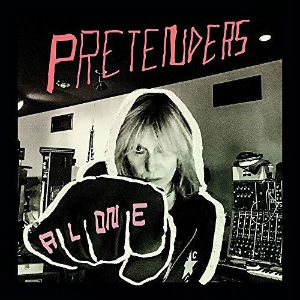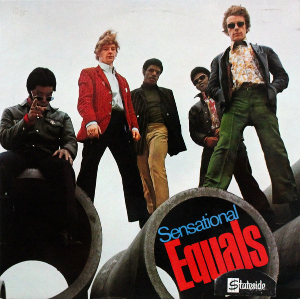
"We Are the Champions" is a song by the British rock band Queen, released from the band's sixth album News of the World (1977). Written by lead singer Freddie Mercury, it remains among rock's most recognisable anthems. The song was a worldwide success, reaching number two in the UK, number four on the Billboard Hot 100 in the US, number three in Canada, and the top ten in many other countries. In 2009 it was inducted into the Grammy Hall of Fame and was voted the world's favourite song in a 2005 Sony Ericsson world music poll.

Teach-In was a Dutch band active from 1967 until 1980. After scoring several top 20 hits in their home country by the early 1970s, the band came to international attention by winning the 1975 Eurovision Song Contest with the song "Ding-a-dong”. Throughout the band's career, there were several changes in line-up.

"Ding-a-dong" is a song recorded by Dutch band Teach-In, with music composed by Dick Bakker and lyrics written by Will Luikinga and Eddy Ouwens. It represented the Netherlands in the Eurovision Song Contest 1975, held in Stockholm, winning the contest. It reached number 1 in both the Swiss and the Norwegian Singles Chart. Teach-In recorded the song in English, Dutch, and German.

Innuendo is the fourteenth studio album by the British rock band Queen, released on 4 February 1991 by Parlophone in the United Kingdom and it is the band's first studio album to be released by Hollywood Records in the United States. Produced by David Richards and the band, it was the band's last album to be released in lead singer Freddie Mercury's lifetime, and their most recent one to be composed of entirely new material, save for The Cosmos Rocks by the Queen + Paul Rodgers collaboration. It reached the No. 1 spot on the UK album charts for two weeks, and also peaked at No. 1 in Italy, the Netherlands, Germany, and Switzerland, staying at No. 1 for three weeks, four weeks, six weeks, and eight weeks, respectively. It was the first Queen album to go Gold in the US upon its release since The Works in 1984.

Future Days is the fourth studio album by the German experimental rock group Can, released on 1 August 1973 by United Artists. It was the group's final album to feature vocalist Damo Suzuki, who subsequently left the band to become a Jehovah's Witness, and explores a more atmospheric sound than their previous releases.

The Equals are an English rock band. They are best remembered for their million-selling chart-topper "Baby, Come Back", though they had several other chart hits in the UK and Europe. Drummer John Hall founded the group with Eddy Grant, Pat Lloyd and brothers Derv and Lincoln Gordon, and they were noted as being "the first major interracial rock group in the UK" and "one of the few racially mixed bands of the era".
Freddie Bell and the Bellboys were an American vocal group, influential in the development of rock and roll in the 1950s. Their recordings include "Hound Dog", "The Hucklebuck" and "Giddy Up a Ding Dong".
"Police on My Back" is a 1967 song originally released by The Equals from their second studio album Explosion. In 1980, the song was covered by The Clash.

"Baby, Come Back" is a song by English band the Equals from their 1967 album Unequalled Equals. Written by Eddy Grant, the song was originally released as a B-side in 1966 and was later released as a single in continental Europe before being released as a single in the UK in 1968. "Baby, Come Back" charted in multiple countries, including number one on the Belgian, Rhodesian and UK charts in 1967 and 1968.
"Giddy Up a Ding Dong" is a rock and roll song which rose to prominence in 1956, when it was featured in the film Rock Around the Clock, starring Bill Haley. It became a hit in several countries for the group Freddie Bell and the Bellboys, and is perhaps their best known recording.

Bundle of Joy is an album recorded in 1977 by jazz trumpeter Freddie Hubbard. It was released on the Columbia label and features performances by Hubbard, Dorothy Ashby, Azar Lawrence and Ernie Watts.

Baby, Come Back is an album by British group The Equals, which was released in the U.S. by RCA Victor, who had obtained the rights to manufacture and distribute the album in all of the Americas from the band's British label, President Records.

Alone is the tenth studio album by English-American rock band the Pretenders. The album was released on 21 October 2016, by BMG Rights Management. It is the first Pretenders album since 2008's Break Up the Concrete, and follows Chrissie Hynde's solo debut Stockholm from 2014.

"Black Skin Blue Eyed Boys" is a song written by Guyanese-British musician Eddy Grant and recorded in London in 1970 by his band the Equals. Their recording, produced by Grant, reached number 9 on the UK Singles Chart in January 1971 and was the band's last chart hit.

Dervan Gordon is a Jamaican-born British singer, who was the lead vocalist for The Equals from 1964 to 2017. After leaving the band in 2017, he started a solo career, and now mainly tours solo around the United Kingdom and the United States.

Unequalled Equals is the debut studio album released by The Equals, released in 1967. The album was produced by Edward Kassner.

Equals Supreme is the fourth album by the Equals, released on President Records.
"I Get So Excited" is a 1968 song released as a single by The Equals from their third studio album Sensational Equals. The song peaked at number 44 on the Official Singles Chart.
"Softly Softly" is a 1968 song released as a single by The Equals from their fourth studio album Equals Supreme. It was their last single to be released in 1968. The song peaked at number 48 on the Official Singles Chart and number eight on South African charts.

Sensational Equals is the third studio album released by The Equals in 1968.














